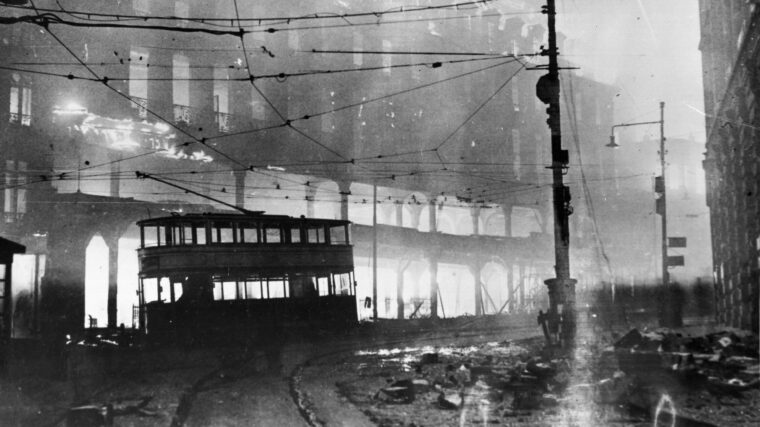
D-Day
“This is London…”: Edward R. Murrow in WWII
By Roy Morris Jr.On the evening of August 7, 1937, two neophyte radio broadcasters went to dinner together at the luxurious Adlon Hotel in Berlin, Germany. Read more
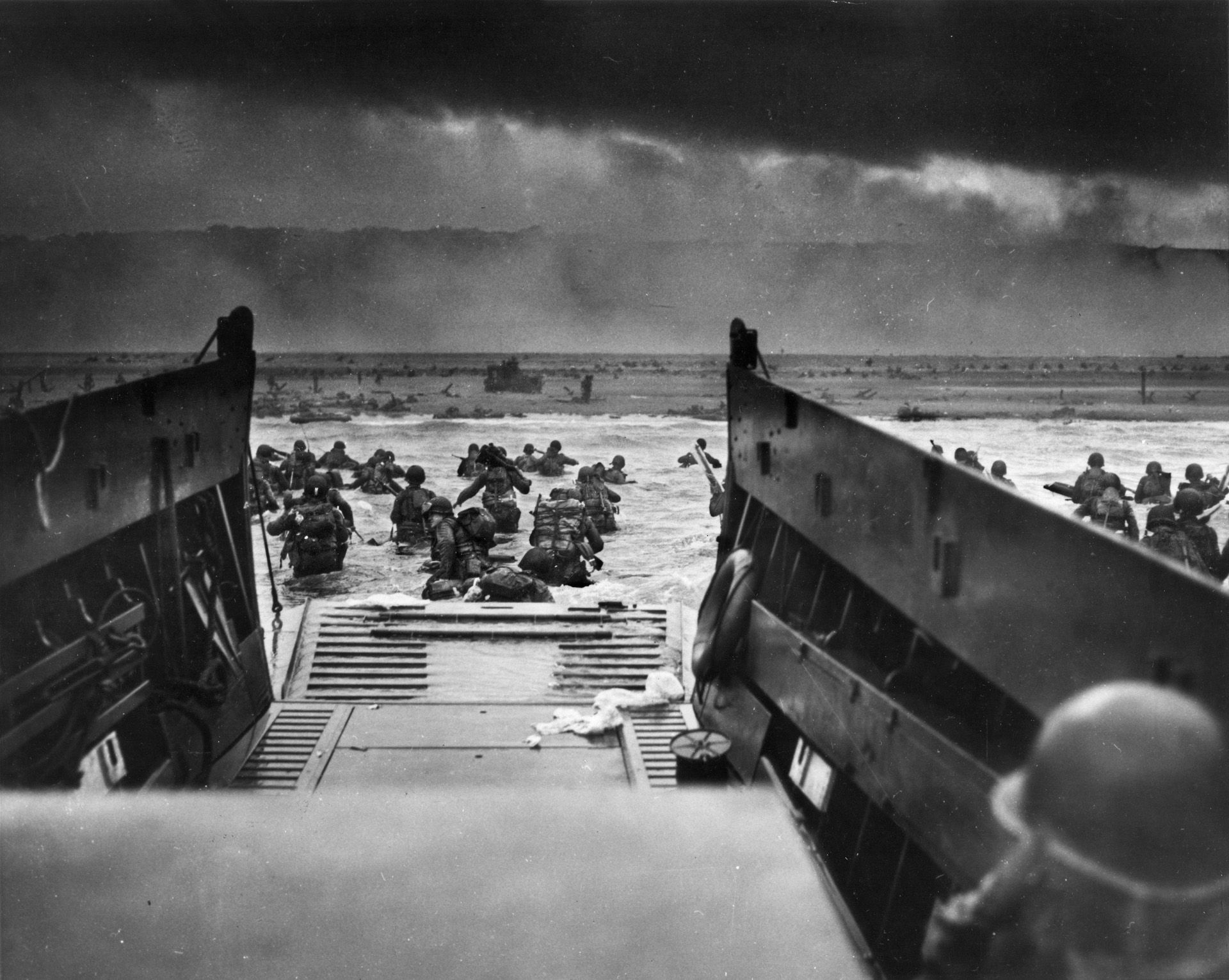
Code named Operation Overlord, the D-Day Invasion occurred on June 6, 1944, as elements of five Allied infantry and three Allied airborne divisions assaulted the Normandy coast of Nazi-occupied France during World War II. Under the overall command of General Dwight D. Eisenhower, the landings on Gold, Juno, Sword, Utah, and Omaha beaches succeeded in establishing a foothold on the continent. Following an arduous campaign in Normandy and savage fighting across the German frontier, troops of the Western Allies met the Soviet Red Army, advancing from the East, and Nazi Germany surrendered on May 7, 1945.

D-Day
On the evening of August 7, 1937, two neophyte radio broadcasters went to dinner together at the luxurious Adlon Hotel in Berlin, Germany. Read more
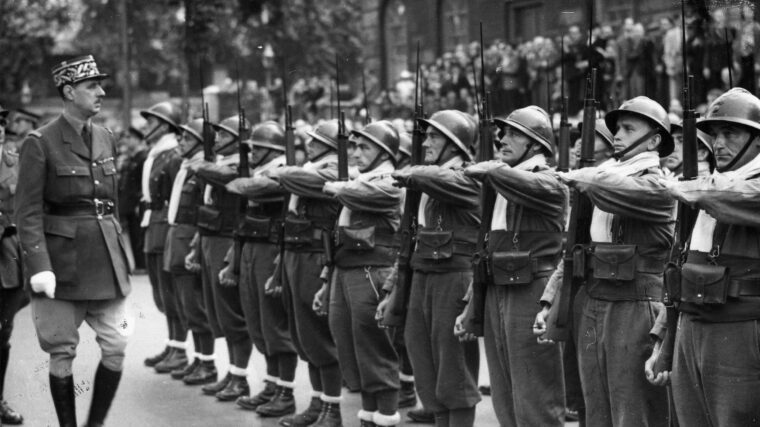
D-Day
On the evening of June 16, 1940, Marshal Henri Philippe Pétain was appointed Prime Minister of France. It was a critical time. Read more
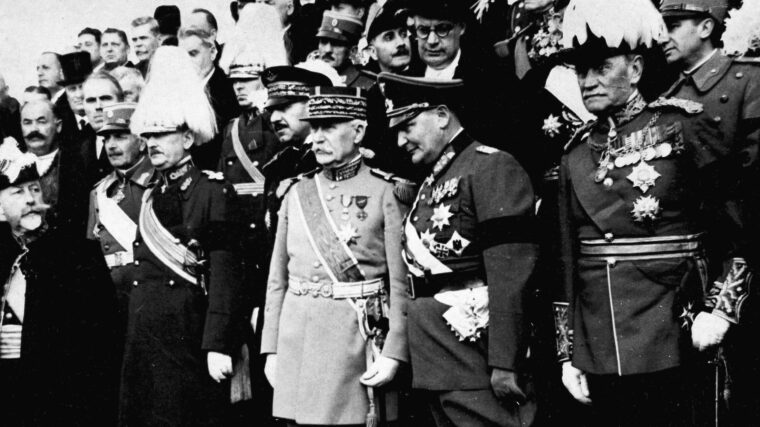
D-Day
“I’ve been old in all my ranks,” said Henri Philippe Pétain, created Marshal of France on December 8, 1918, at age 62. Read more
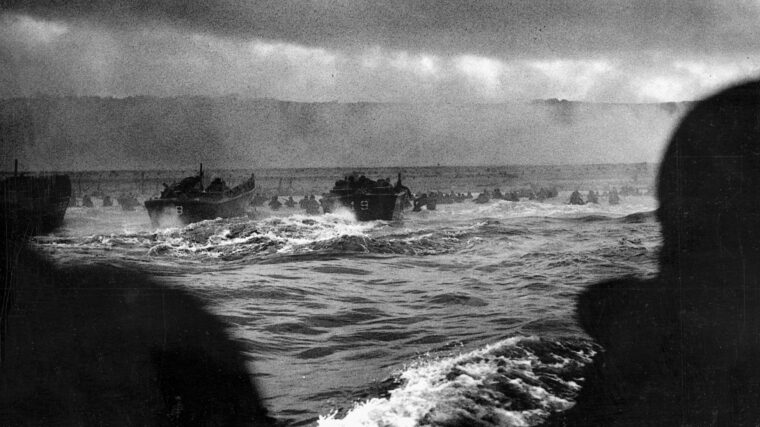
D-Day
Operation Overlord, the cross-Channel attack that hit the Nazi-occupied beaches of Normandy in 1944, was the culmination of a grand strategy adopted early in the war, followed sporadically during the years of conflict, and aimed at defeating Hitler’s Reich by striking directly at Germany by invasion. Read more
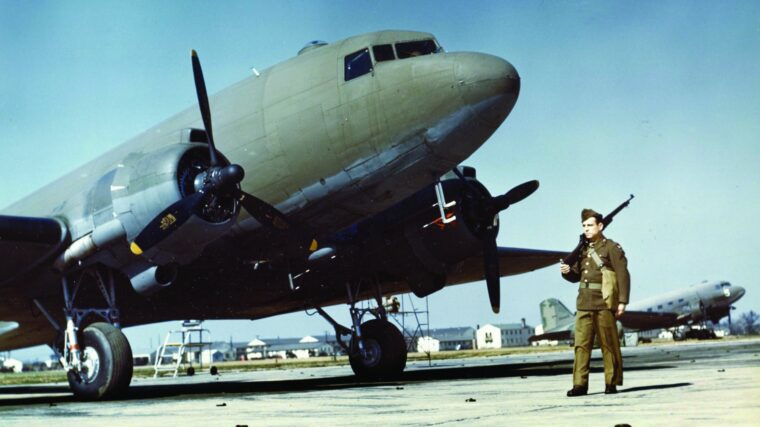
D-Day
Even though, technically at least, it was not a combat airplane, the performance of the Douglas C-47 transport led General of the Army Dwight Eisenhower to label it as one of the most important weapons of World War II. Read more
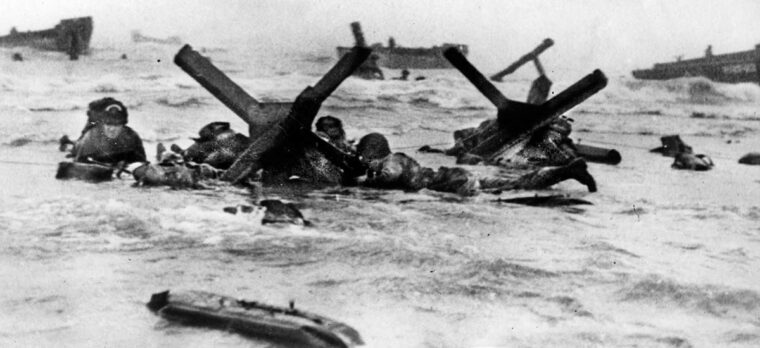
D-Day
Nineteen-year-old army combat engineer Jay Rencher blinked the salt spray from his eyes, filled his lungs, and again plunged beneath the cold, roiling waves. Read more
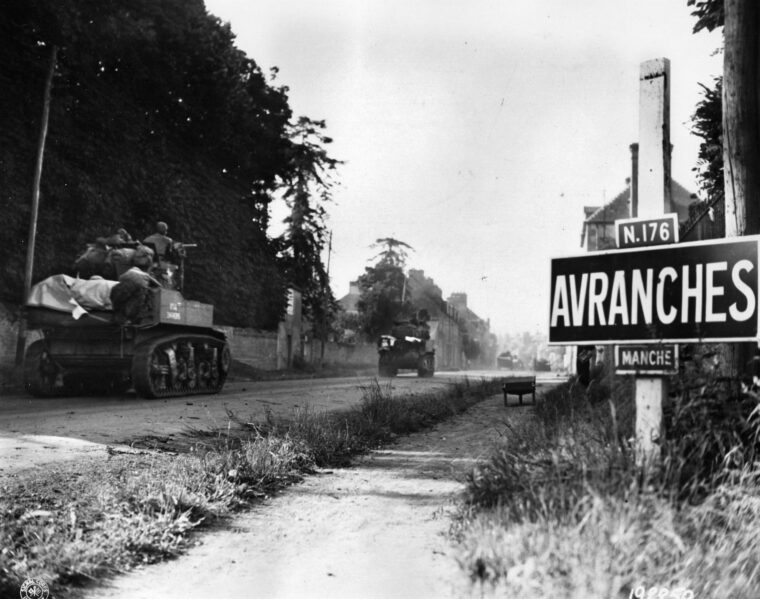
D-Day
Lieutenant General Omar Bradley had reason to be pleased by the last week of July 1944. His First Army had scratched out a substantial foothold on the Normandy coast, capturing three times more French territory than his British allies. Read more

D-Day
Sergeant Charles Callistan looked through the sights of an antitank gun at an approaching enemy tank. His weapon, a six-pounder cannon, was in the perimeter of a surrounded British outpost named Snipe. Read more
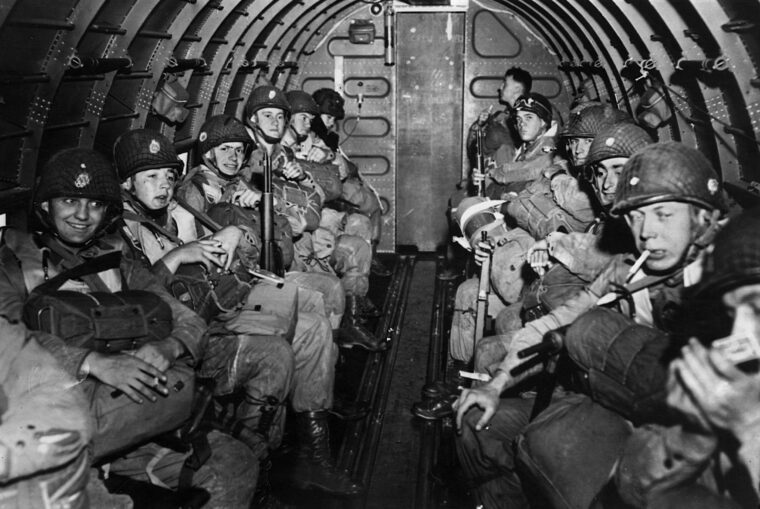
D-Day
Reginald Alexander was born in Gardnerville, Nevada, in 1924 to Scottish émigré parents who were originally from Westcolvin, Scotland. Read more
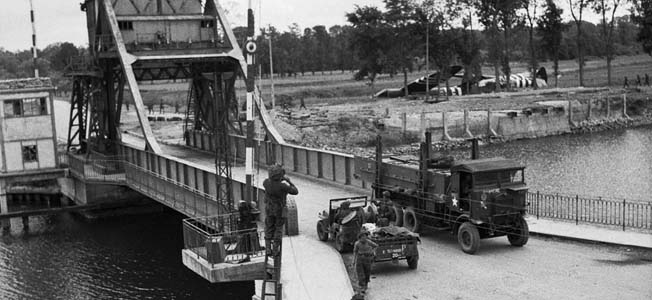
D-Day
This article was provided by Martin Cherrett, whose blog, World War II Today, provides a unique way military history enthusiasts can understand and experience the Second World War. Read more
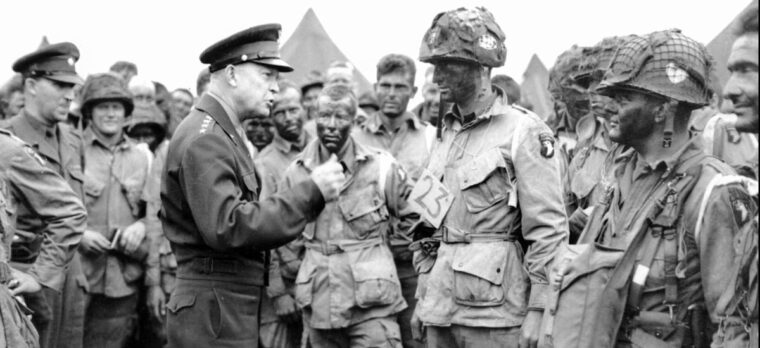
D-Day
Made popular by the Band of Brothers portrayal of Easy Company, the U.S. paratrooper “cricket” was in fact used to identify each other in the predawn hours of the D-Day invasion. Read more
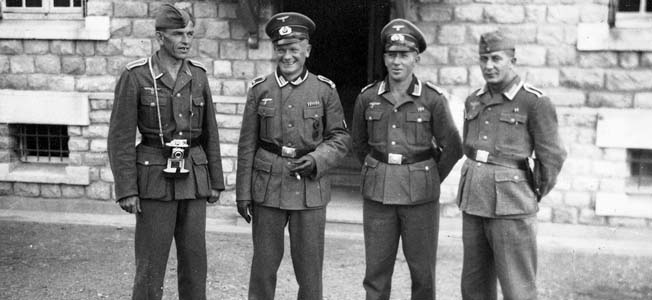
D-Day
World War II, being far more fluid than World War I, marked the advent of the mobile radio intercept unit whose task was to pick up, decrypt if possible, and pinpoint enemy units sending their messages through the airways. Read more
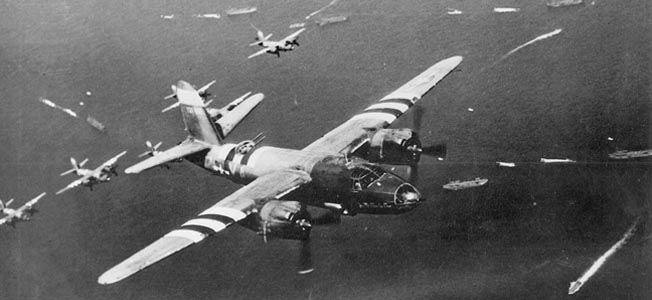
D-Day
On June 6, 1944 the Allies opened the Second Front against Nazi Germany. Concentrated against the beaches of Normandy, Operation Overlord landed 20 army divisions plus support troops on five beaches in anticipation of a breakout across France and toward Berlin. Read more
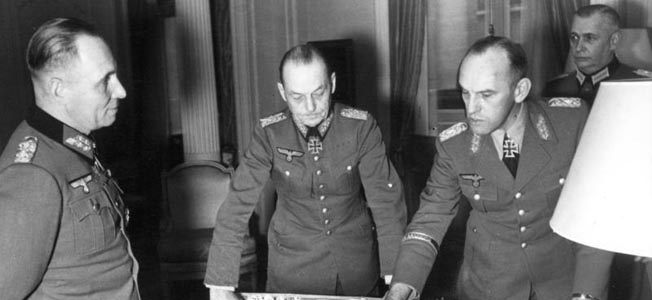
D-Day
The Allied invasion of Nazi-occupied Europe was inevitable as the tide of World War II turned against Germany. Read more
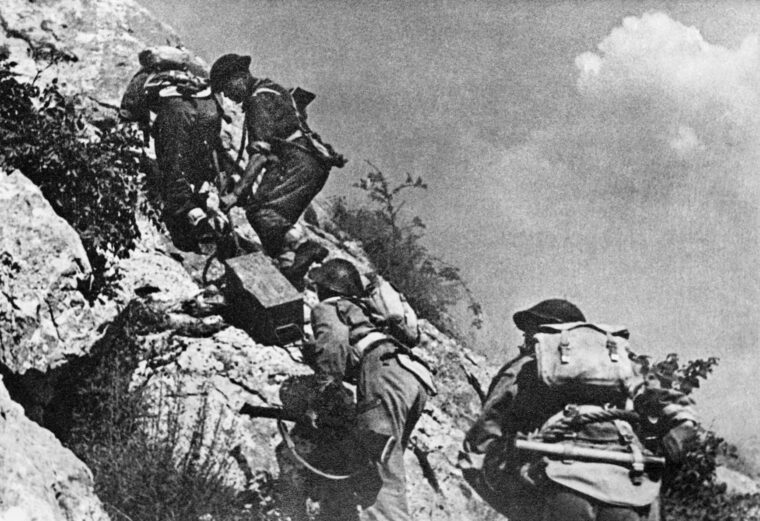
D-Day
I wrote previously about my guided three D-Day tours in the summer of 2014. I repeated the tour-guiding experience in May and June this year for the Minnesota World War II History Roundtable during a tour of Fifth Army battlefields in Italy. Read more
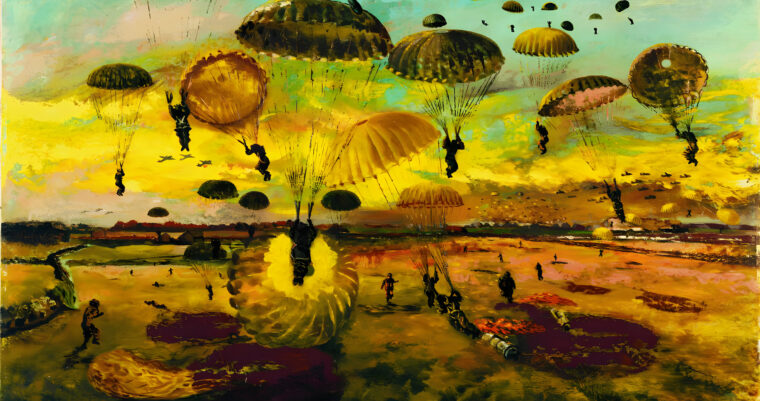
D-Day
Just boys facing danger, please God make them men; If they live through the danger, make them boys once again. —Sergeant Ginger Woodcock, June 5, 1944
On the morning of June 6, 1944, the greatest amphibious fleet in history bore in toward the coast of Normandy. Read more
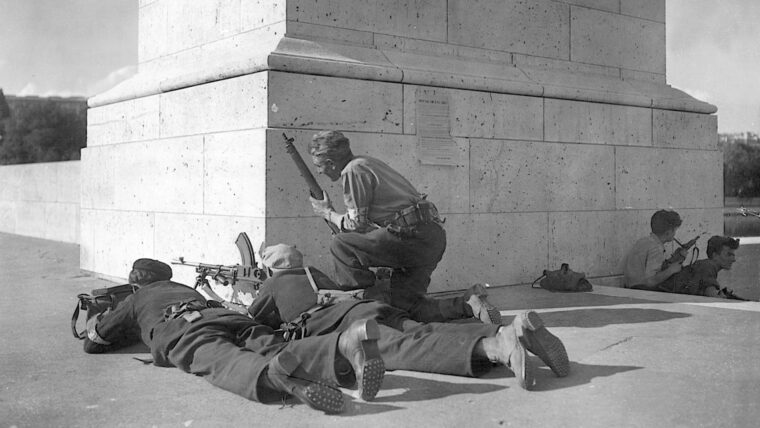
D-Day
On a moonless night in January 1944, in the Haute Savoie region of southeast France, the drone from the engine of a RAF bomber could be heard in the distance. Read more
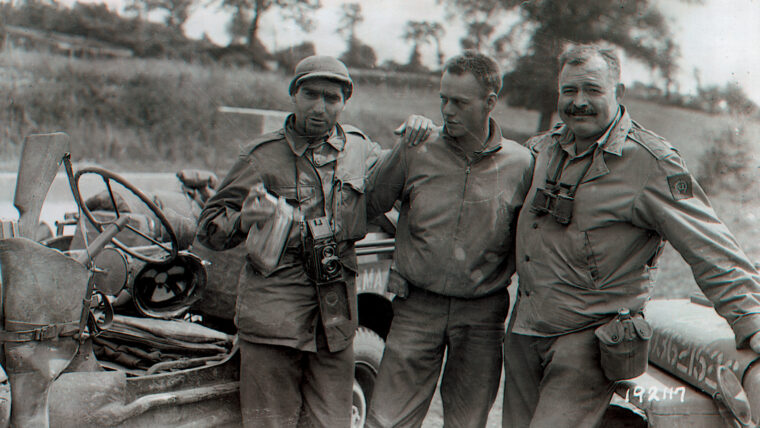
D-Day
When the United States entered World War II in December 1941, the nation’s most famous writer, a man who had built his reputation on gritty and intense novels about wars, soldiers, and “grace under pressure,” was nowhere to be seen—at least not on the home front. Read more
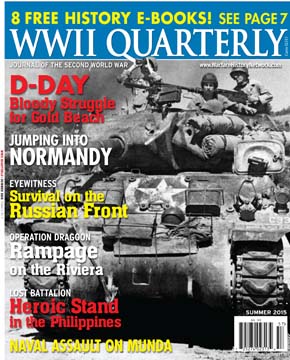
D-Day
by Flint Whitlock
One of the great things about being a military historian is that you get to go places and meet people you might not ordinarily get to see and meet. Read more
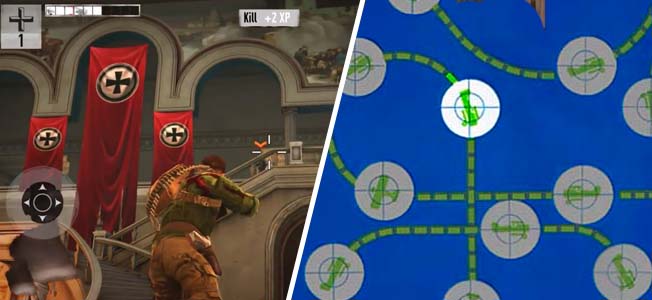
D-Day
Originally part of Ralph Baer’s “Shooting Gallery” expansion, Dogfight was released for the Magnavox Odyssey in 1972. There were no scores per se, and certainly no characters, missions, or upgrades. Read more